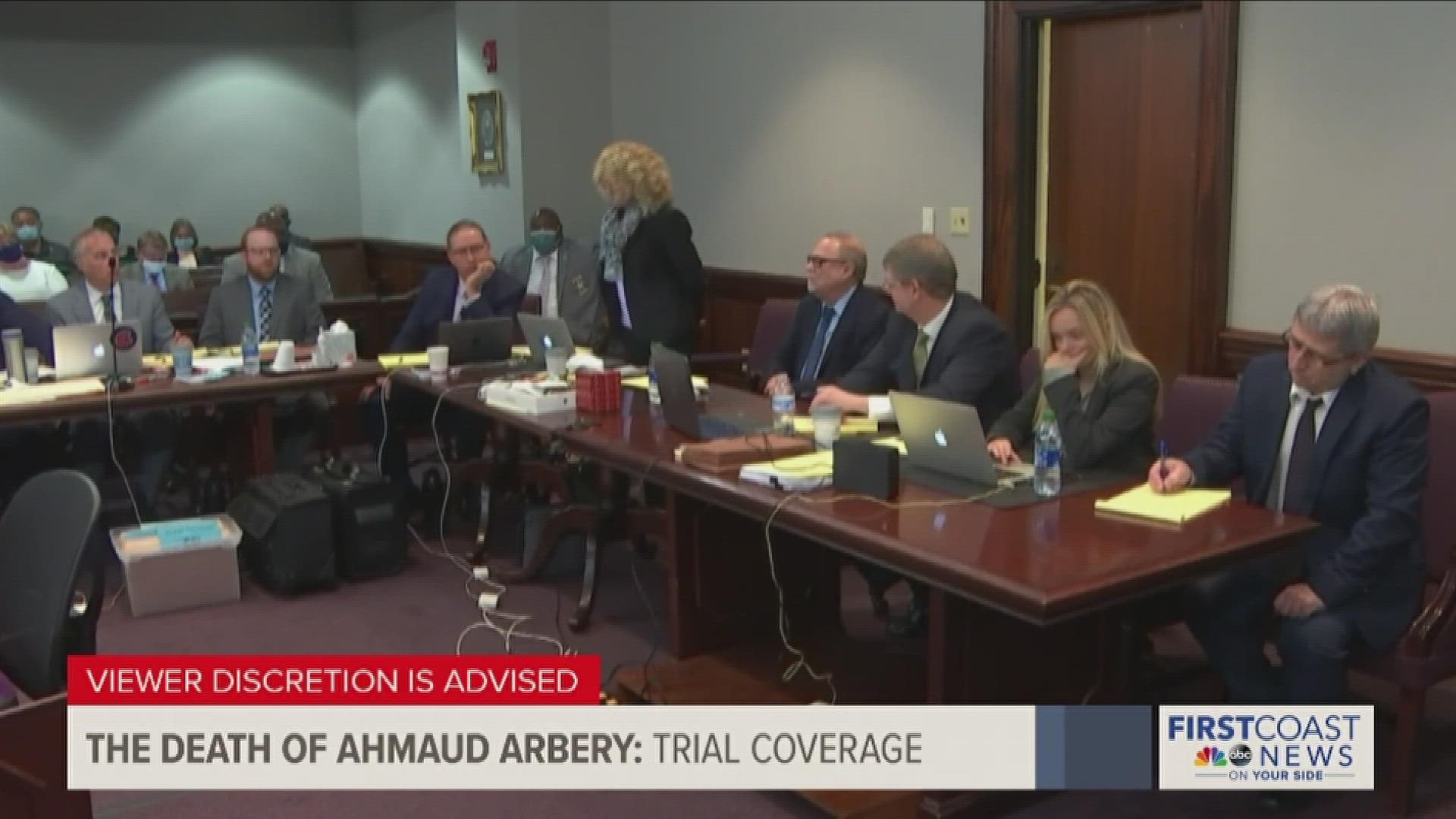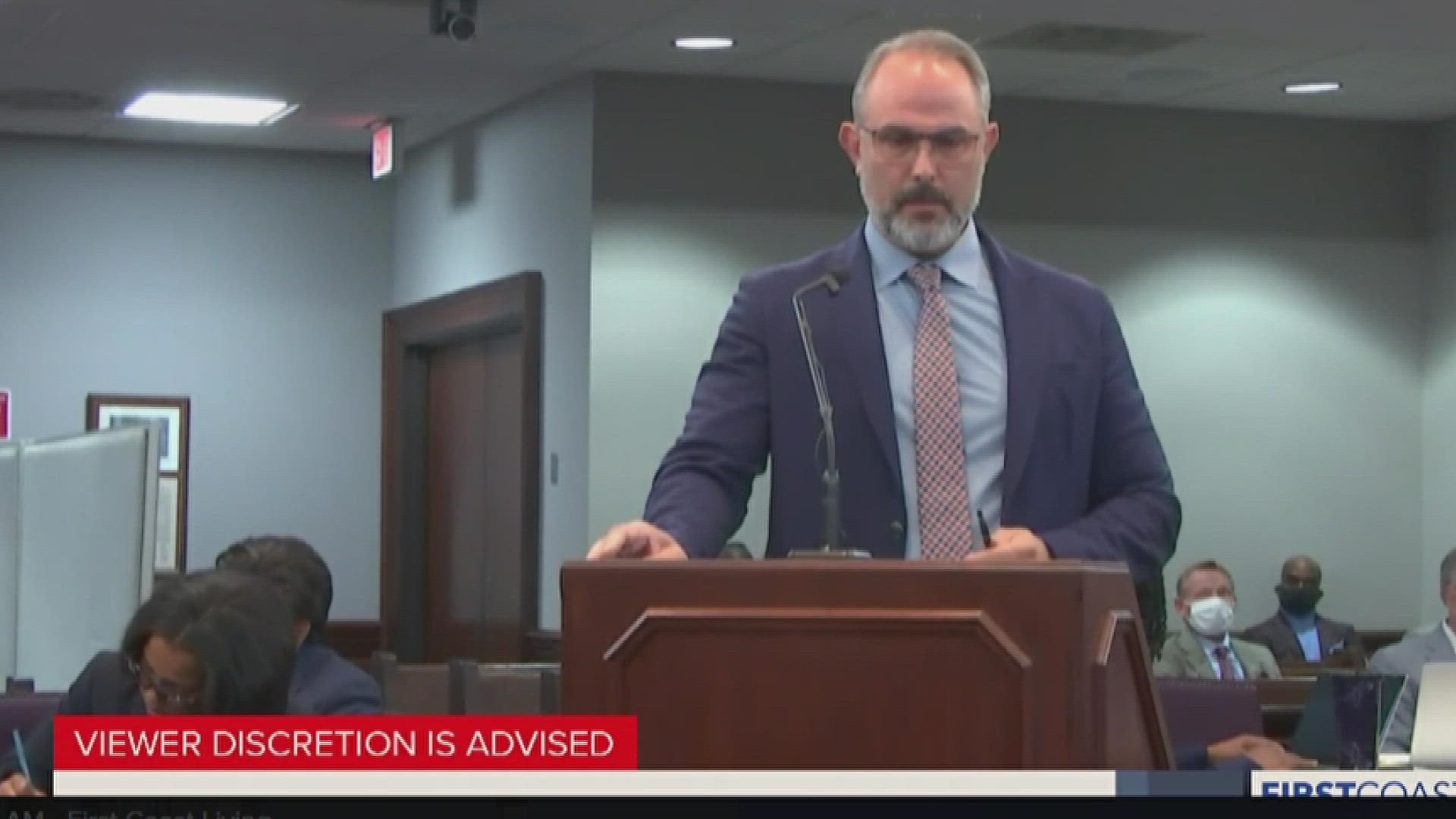BRUNSWICK, Ga. — Controversy over the presence of Black pastors in court supporting Ahmaud Arbery’s family members resurfaced Monday with the arrival of the Rev. Jesse Jackson.
Attorney Kevin Gough, who represents murder defendant Roddie Bryan in the death of Ahmaud Arbery trial, ignited a firestorm Friday when he objected to the presence of the Rev. Al Sharpton, saying “we don’t want any more Black pastors coming in here.”
He later apologized "to anyone who may have been inadvertently offended," and was excoriated Travis McMichael's attorney Jason Sheffield, who labeled his comments “asinine.”
But Gough didn't let the issue die. He began the day asking the judge to have the sheriff "track and record" the presence of people attending court -- something the judge refused to do -- and launched a new attack later in the morning, after spotting Jackson during a court break.
Citing case law from mob trials in which judges restricted the attendance of certain spectators, Gough said it “demonstrates all the ways that presence in a gallery can influence jurors in a case.”
“I certainly don't mean to suggest that Al Sharpton or Jesse Jackson or any other pastor belong to a mob,” Gough said. “But at the same time, we are talking about organized behavior -- by whoever outside the courthouse -- leading up to this case, where we have all these community leaders fearful that the city is going to burn down. This isn't a mob case. If you testify against a gangster, they might burn your house down. They might bring your business down. They’re not going to burn your whole city down.”
Gough, who has previously lamented a lack of "Bubbas" on the jury and initially portrayed his client as an uneducated mechanic, moved for a mistrial.
Judge Timothy Walmsley was clearly frustrated that the issue resurfaced. “I do not understand, Mr. Gough, why this motion keeps being made.” He later added that he found Gough's Friday comments “reprehensible” particularly when he appeared to equate the presence of Black pastors with “folks … dressed as Colonel Sanders with white masks.”
But Jackson’s presence raised concerns among the other defense attorneys as well.
Greg McMichael's attorney Laura Hogue reluctantly joined the request for a mistrial. While noting, “Mr. Gough and I may not agree on a number of things,” she said that Jackson’s presence when Arbery’s mom had an emotional outburst would influence jurors.
She said when Wanda Cooper Jones cried out as a photo of Arbery was shown, she observed a number of jurors looking back. "Having jurors hear and see and visualize the emotion, and now to be comforted by someone for whom respect abounds, we're in a very difficult position now with this jury. … I saw jurors looking back at what was going on in the gallery, and then looking at me,” said Hogue.
Attorney Sheffield echoed that:
“There were several jurors that did look over. Their faces changed -- the emotion, the sympathy that they felt," he said. "And to see then, Mr. Reverend Jackson -- whose autographed picture hung in my mother's law office for two decades -- who is the ultimate figure of fairness and justice and equality -- to see that? I don't think it gets any higher in terms of the impression that that makes.”
Such deference was absent from Gough's request. Though he called Jackson “an icon of the Civil Rights Movement,” he suggested his presence was a calculated strategy.
“I guess the next question is, which pastor is next? Is Raphael Warnock going to make it be the next person appearing this afternoon? We don't know. Your Honor, I would submit with all respect to the Reverend Jesse Jackson, that this is no different than bringing in police officers or uniform prison guards in a small town where a young black man has been accused of assaulting a law enforcement officer or corrections officer.”
The judge denied the motion for mistrial, saying that unless someone disturbed court proceedings, they would be allowed to be in the courtroom like anyone else.


